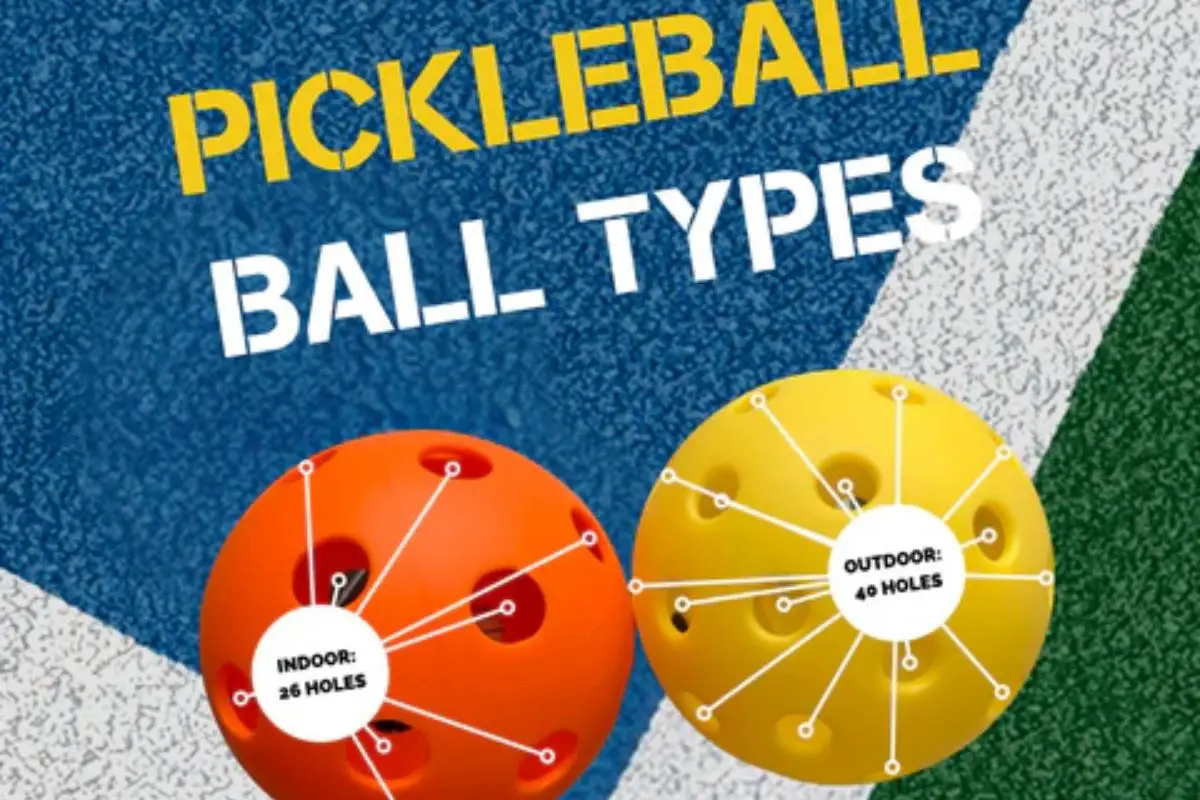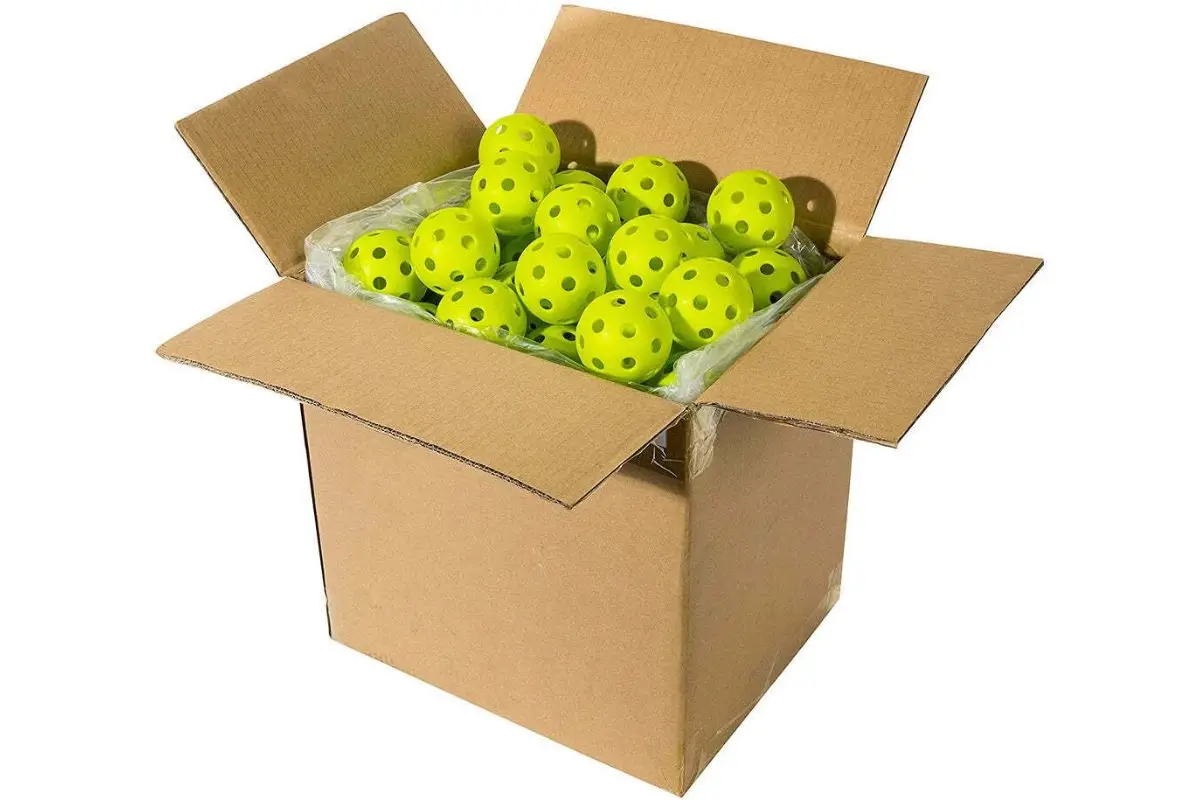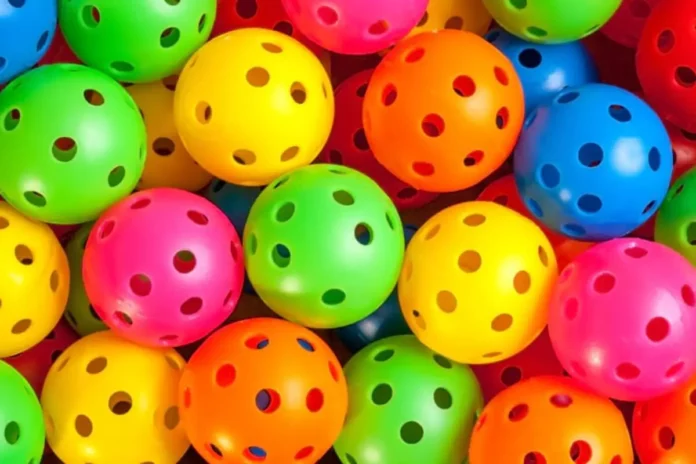Choosing the Perfect Pickleball Ball: Pickleball, a rapidly growing sport that merges elements from tennis, badminton, and ping-pong, relies heavily on the type of ball used.
A Closer Look at Pickleballs
Pickleballs are lightweight, durable, perforated plastic balls designed for optimal flight and bounce. Their construction enables them to perform consistently, whether played on outdoor pickleball courts or indoor gym floors.
Two main types of pickleballs exist: indoor and outdoor, each tailored for specific environments and playing conditions. Both types are essential not only for casual games but also for official competitions and tournaments.
Composition and Design
Crafted from hard plastic, typically durable polymer, pickleballs are built to withstand the demands of the game, particularly on rough outdoor surfaces. The ball features strategically placed perforations, regulating airflow for stable flight.
Standard pickleballs have a circumference ranging from 20 to 21 centimeters and weigh between 22.1 and 26.5 grams. Despite their lightweight nature, these balls are engineered for durability, though their lifespan is influenced by the playing surface and environmental factors.
Variety of Pickleballs
The primary distinction among pickleballs is their intended use—indoor versus outdoor play. While they may look alike, the variations in structure, performance, and longevity cater to different playing styles.
Indoor Pickleballs
Indoor pickleballs are lighter and softer, featuring larger and fewer holes—usually 26. This design allows for more controlled gameplay, enabling slower movement and easier direction control.
Ideal for strategic play, indoor pickleballs promote longer rallies and finesse. Because indoor courts are typically smoother, these balls endure less wear, resulting in a longer lifespan compared to their outdoor counterparts.
Outdoor Pickleballs
Outdoor pickleballs are heavier and sturdier, designed to endure wind and rough court conditions. With around 40 smaller holes, they are engineered for better resistance to outdoor elements, enabling faster gameplay and greater durability.
While outdoor balls are optimized for power play and quick reactions, their construction makes them immune to damage from abrasive surfaces, leading to a shorter lifespan.

Visibility and Color Options
Pickleballs are available in a variety of colors, including yellow, white, and neon green, with yellow being the most popular. Color choice often depends on lighting conditions and the court’s surface color.
For outdoor play, bright colors like neon yellow or green enhance visibility against natural backdrops, while indoor settings may benefit from white or neon green balls for optimal contrast.
Leading Brands in Pickleball
Several brands dominate the pickleball market, offering products tailored for different styles and environments. Notable brands include:
- Onix Dura Fast 40: Known for durability and precision, this outdoor ball is a favorite in tournaments, featuring 40 small holes for effective handling in outdoor conditions.
- Franklin X-40: Another outdoor option, the Franklin X-40 excels in flight control and durability, maintaining stability with 40 drilled holes.
- Franklin X-26: The indoor variant of Franklin, the X-26 features 26 larger holes and offers a softer feel, making it a go-to for indoor players prioritizing control and balance.
- Gamma Photon: Available for indoor and outdoor play, Gamma Photon balls are durable and brightly colored, enhancing visibility for players during fast-paced games.

Regulations Governing Pickleball Balls
Official gameplay requires adherence to regulations set by governing bodies like the USA Pickleball Association (USAPA). These rules specify size, weight, bounce, and flight characteristics for pickleballs.
For instance, a regulation ball should bounce no more than 86 centimeters when dropped from a height of 198 centimeters onto concrete. Tournament organizers often mandate specific ball models, with the Onix Dura Fast 40 being a staple in professional tournaments as of 2023 and the Vulcan VPRO FLIGHT ball set for 2024 events.
Comparing Pickleballs and Wiffle Balls
While they may appear similar, significant differences exist between pickleballs and wiffle balls. Both are perforated plastic, but wiffle balls feature fewer, larger holes for erratic flight patterns, suitable for baseball-style games.
In contrast, pickleballs are crafted for controlled flight and consistent bounce, essential for precision and speed in gameplay. Though wiffle balls can be used casually in pickleball, they lack the performance quality of dedicated pickleballs, making regulation balls essential for competitive play.
Caring for the Pickleballs
Like all sports equipment, pickleballs experience wear and tear. Their lifespan varies based on factors like frequency of play and the playing surface.
Outdoor pickleballs typically have a shorter lifespan due to exposure to harsher conditions. Signs of wear, such as cracks or diminished bounce, indicate when a ball should be replaced.
To maintain performance, players should regularly inspect their pickleballs, replacing them as needed. Quality pickleballs are affordable and readily available at sporting goods stores and online retailers.

